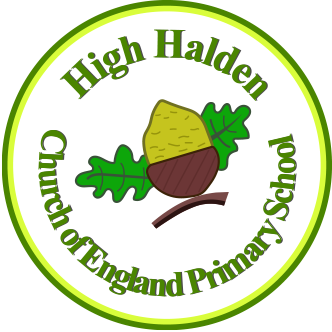Languages
🌍 Modern Foreign Languages (MFL) at High Halden
“One language sets you in a corridor for life. Two languages open every door along the way.”
— Frank Smith
At High Halden Church of England Primary School, we recognise the immense value of learning another language in an increasingly globalised world. A high-quality language education fosters pupils’ curiosity and deepens their understanding of the world around them. It equips children with the skills, knowledge and confidence to communicate across borders and cultures, opening doors to new experiences and opportunities.
🇫🇷 Why Learn French?
The core language taught at High Halden is French, and all pupils in Key Stage 2 receive weekly French lessons taught by their class teacher. Lessons follow the Kapow Primary scheme, a structured and progressive programme that enables children to build a strong foundation for language learning and prepare confidently for Key Stage 3 and beyond.
🎯 Our Vision for MFL
Through our French curriculum, we aim for children to:
-
Develop an understanding of key vocabulary and grammar
-
Communicate confidently through speaking and writing
-
Comprehend written and spoken French
-
Appreciate the culture, history and traditions of French-speaking countries
-
Build resilience and enthusiasm for language learning
-
Apply their language skills in meaningful, real-world contexts
📚 What Core French Skills and Knowledge Are Covered?
Kapow Primary’s French scheme of work is built around six key strands, each revisited and developed over time through a spiral curriculum:
1. Phonics
Pupils become familiar with key French phonemes, improving their spelling and pronunciation through regular exposure and practice.
2. Vocabulary
Children are introduced to commonly used words and phrases, memorising high-frequency keywords to support everyday communication.
3. Grammar
Key grammar structures are introduced systematically and applied across speaking, writing, reading, and listening activities.
4. Language Comprehension (Listening & Reading)
Pupils apply their phonics, vocabulary, and grammar knowledge to decode and understand spoken and written French using a variety of strategies.
5. Language Production (Speaking & Writing)
Children use what they’ve learned across other strands to speak clearly, confidently and write accurately in French.
6. Cultural Awareness
Pupils explore the wider French-speaking world, learning about traditions, celebrations, food, art, and customs in France and beyond.
🌀 A Spiral Curriculum
The Kapow scheme is designed as a spiral curriculum, meaning pupils revisit each area of learning at increasing levels of complexity. This ensures long-term retention and deeper understanding over time. Each unit builds on prior knowledge, allowing children to develop fluency and confidence as they progress through Key Stage 2.
🌟 Enrichment and Cultural Connections
We believe language learning is most powerful when it connects to the real world. That’s why we provide children with meaningful enrichment opportunities, including:
-
An annual ‘Day of Languages’ – celebrating a range of global languages and cultures through themed activities
-
Collaborations with partner schools – enhancing learning through shared events and multilingual experiences
-
Regular pupil voice activities – giving children the chance to shape and reflect on their language learning journey
🌱 Early Exposure in EYFS and KS1
While formal French teaching begins in Key Stage 2, younger pupils in EYFS and KS1 are gently introduced to other languages through songs, stories, greetings, and rhymes. This encourages a love for languages early on and sets a strong foundation for future learning.
🗣️ Confident Communicators and Global Citizens
At High Halden, we believe that learning a language goes far beyond vocabulary lists. It helps children become more open-minded, more articulate, and more prepared to engage with the wider world.
By the end of Key Stage 2, our pupils leave us with a growing vocabulary, a good understanding of basic grammar, cultural appreciation, and the confidence to communicate in another language — preparing them for continued success at secondary school and in life.
Here is the overview for KS2 Languages for this academic year:


